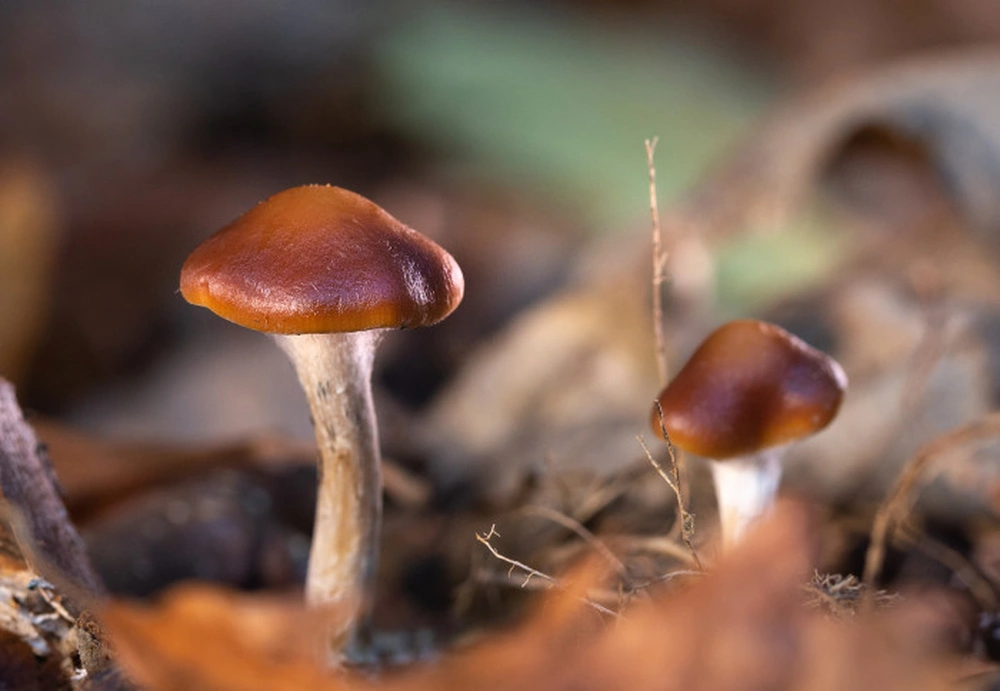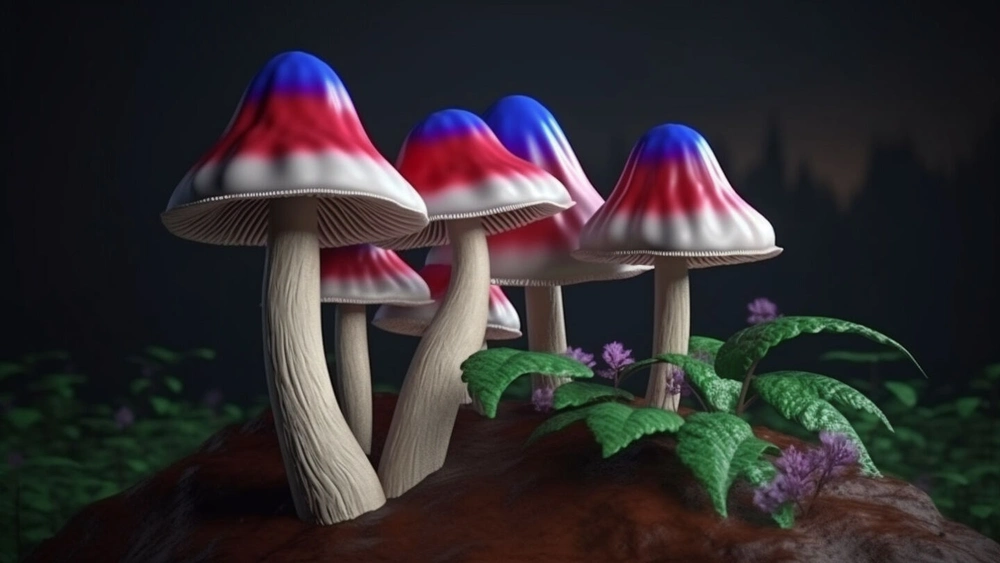Depression is a mental health condition that affects millions of people worldwide. Traditional treatments, such as antidepressant medications and therapy, can be effective for some but may not work for everyone. Recently, a new and promising alternative has emerged: psilocybin therapy. This article will explore the science behind using magic mushrooms for depression and the potential benefits of this unconventional treatment.
What are Magic Mushrooms?

Magic mushrooms, also known as psilocybin mushrooms, are a type of fungus that contains the psychoactive compound psilocybin. When ingested, psilocybin is converted into psilocin, which interacts with the brain’s serotonin receptors, inducing a range of psychological effects. These effects can include altered perceptions, euphoria, and introspective experiences, which have led to the mushrooms’ use in traditional and modern spiritual practices.
Psilocybin and Depression
Research into the potential antidepressant effects of psilocybin is still in its early stages, but the results so far have been promising. Several studies have shown that psilocybin can have a rapid and long-lasting effect on reducing depressive symptoms.
The Neurobiology of Psilocybin
The exact mechanism by which psilocybin helps alleviate depression is not yet fully understood. However, research suggests that it may involve changes in brain activity and connectivity.
Studies using functional magnetic resonance imaging (fMRI) have shown that psilocybin can decrease activity in the default mode network (DMN), a network of brain regions associated with self-referential thinking and mind-wandering. Hyperactivity in the DMN has been linked to depression, and the reduction in DMN activity following psilocybin administration may contribute to its antidepressant effects.
Additionally, psilocybin has been shown to increase connectivity between different brain regions, which could help promote more flexible and adaptive thinking patterns. This enhanced connectivity may help individuals with depression break free from persistent negative thought patterns.
Clinical Trials
Several clinical trials have examined the efficacy of psilocybin in treating depression. A 2020 study conducted by the Imperial College London found that psilocybin therapy significantly reduced depressive symptoms in participants with treatment-resistant depression. Moreover, 67% of participants reported that the improvements in their symptoms persisted for at least five weeks after the treatment.
Another study published in the New England Journal of Medicine in 2021 compared the effectiveness of psilocybin therapy with a conventional antidepressant medication, escitalopram. The results showed that psilocybin therapy led to similar reductions in depressive symptoms as escitalopram but with fewer side effects.
The Future of Psilocybin Therapy
While the research on psilocybin therapy for depression is promising, more extensive clinical trials are needed to confirm its safety and effectiveness. Additionally, the development of standardized treatment protocols and ensuring accessibility to those who could benefit from this therapy are essential for its successful implementation.
Currently, psilocybin is classified as a Schedule I substance in many countries, meaning it is considered to have a high potential for abuse and no accepted medical use. However, as the evidence supporting its therapeutic potential continues to grow, it is possible that the legal status of psilocybin may change in the coming years.
In the meantime, further research into the complex relationship between psilocybin and depression is needed to unlock the full potential of this promising therapy.
Psilocybin mushrooms can also have other potential therapeutic uses beyond depression.
Research suggests that psilocybin therapy may also be effective in treating anxiety, addiction, and post-traumatic stress disorder (PTSD). Additionally, some studies have shown that psilocybin can increase creativity, enhance feelings of connectedness, and facilitate spiritual experiences. However, more research is needed to fully understand the potential benefits and risks of psilocybin for these conditions. It is also important to note that psilocybin therapy should only be administered under the supervision of a trained healthcare professional in a controlled setting.
Also read : Mushroom Spores: What Are They & How to Get Your Own
Magic mushrooms buy
It is important to note that the sale and possession of magic mushrooms are illegal in many jurisdictions. However, in some places, it may be legal to purchase or possess spores or grow kits for the purpose of cultivating magic mushrooms. If you are considering purchasing magic mushrooms or related products, it is essential to research the laws in your area and to only purchase from reputable sources. It is also important to be aware of the potential risks and side effects associated with magic mushroom use and to use them responsibly and under the supervision of a healthcare professional or experienced guide.
How to grow magic mushrooms
Growing magic mushrooms can be a fascinating and rewarding hobby, but it requires careful attention to detail and a sterile environment to ensure a successful harvest. Here’s a step-by-step guide to help you get started with growing your own magic mushrooms:
1. Choose your strain: There are many different strains of magic mushrooms, each with their own unique properties and growth requirements. Some popular strains include Psilocybe cubensis, Psilocybe cyanescens, and Psilocybe azurescens. Choose a strain that is well-suited to your level of experience and growing conditions.
2. Gather your supplies: To grow magic mushrooms, you will need a few basic supplies, including spores or a spore syringe, a growing medium such as sterilized grain or compost, a substrate such as vermiculite or coco coir, and a container to hold everything. You will also need a pressure cooker or other method of sterilization, as well as a clean and sterile workspace.
3. Prepare your growing medium: Depending on the strain you have chosen, you may need to sterilize your growing medium to eliminate any bacteria or contaminants. This can be done using a pressure cooker or other method of sterilization. Once your growing medium is sterilized, you can inoculate it with spores or a spore syringe.
4. Incubate your jars: After inoculating your growing medium, you will need to keep it in a dark and warm place for several weeks while the mycelium grows and colonizes the substrate. This process is called incubation, and it is essential for the success of your mushroom cultivation.
5. Prepare your fruiting chamber: Once your jars are fully colonized, it is time to transfer them to a fruiting chamber. This can be as simple as a plastic container with holes drilled in the lid for ventilation. Fill the container with a layer of moist vermiculite or coco coir, and place your colonized jars on top.
6. Grow your mushrooms: Over the next few weeks, your mushrooms will begin to grow. Keep the fruiting chamber moist and well-ventilated, and monitor the temperature and humidity levels to ensure optimal growth conditions. Harvest your mushrooms when they have fully matured but before the veils underneath the cap have broken.
7. Dry your mushrooms: Once you have harvested your mushrooms, you can dry them using a dehydrator or by leaving them out in a well-ventilated area. Store them in an airtight container in a cool and dry place until you are ready to consume them.
It is important to note that growing magic mushrooms can be illegal in some jurisdictions, and it is essential to research the laws in your area before starting your cultivation. Additionally, it is essential to practice good hygiene and safety measures throughout the growing process to prevent contamination or other issues that could compromise the quality of your harvest.
Conclusion
Magic mushrooms have been used for centuries in various cultures for their spiritual and mind-altering properties. Now, modern science is uncovering the potential of psilocybin therapy as an effective treatment for depression. While more research is needed, the evidence so far suggests that psilocybin may offer a valuable alternative for those who do not respond to traditional treatments. As our understanding of the science behind psilocybin therapy continues to grow, it is possible that this once-taboo substance could become a game-changer in the field of mental health.
Shrooms, also known as magic mushrooms, are a type of fungi that contain the psychoactive compound psilocybin. When ingested, psilocybin is converted into psilocin, which interacts with the brain’s serotonin receptors, inducing a range of psychological effects.
Research into the potential antidepressant effects of psilocybin is still in its early stages, but the results so far have been promising. Several studies have shown that psilocybin can have a rapid and long-lasting effect on reducing depressive symptoms.
The exact mechanism by which psilocybin helps alleviate depression is not yet fully understood. However, research suggests that it may involve changes in brain activity and connectivity.
The legality of magic mushrooms varies by country and state. In many places, psilocybin is classified as a Schedule I substance, meaning it is considered to have a high potential for abuse and no accepted medical use.
Psilocybin can cause a range of psychological and physical effects, including altered perceptions, euphoria, anxiety, and nausea. However, when used in a controlled and supervised setting, the risk of adverse effects is relatively low.
Psilocybin therapy is usually administered in a controlled and supervised setting, such as a clinical trial or a specialized treatment center. The psilocybin is typically consumed in the form of capsules or a tea.
Psilocybin therapy may be a good option for individuals who have not responded to traditional treatments for depression, such as antidepressant medications and therapy. However, it is important to consult with a healthcare professional to determine if psilocybin therapy is a suitable option.
A psilocybin therapy session can last anywhere from 4 to 8 hours, depending on the dose and the individual’s response to the treatment.
The effects of psilocybin therapy can last for several hours, but the improvements in depressive symptoms may persist for weeks or months after the treatment.
Currently, psilocybin therapy is not covered by most insurance plans, as it is still considered an experimental treatment. However, as the evidence supporting its therapeutic potential continues to grow, it is possible that insurance coverage may become available in the future.
Like any drug, shrooms can have risks and side effects, particularly when used in high doses or in combination with other substances. These can include nausea, anxiety, psychotic episodes, and other negative psychological effects. It is important to use shrooms responsibly and to seek medical help if you experience any concerning symptoms.












